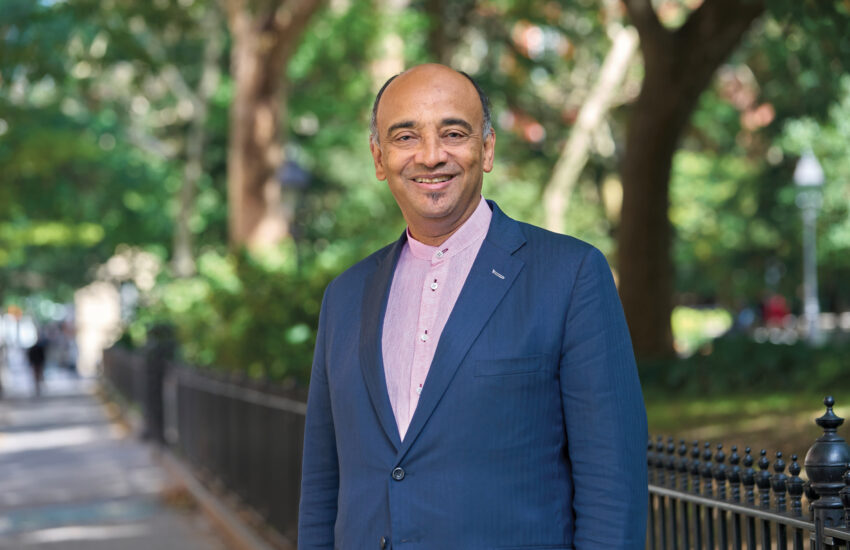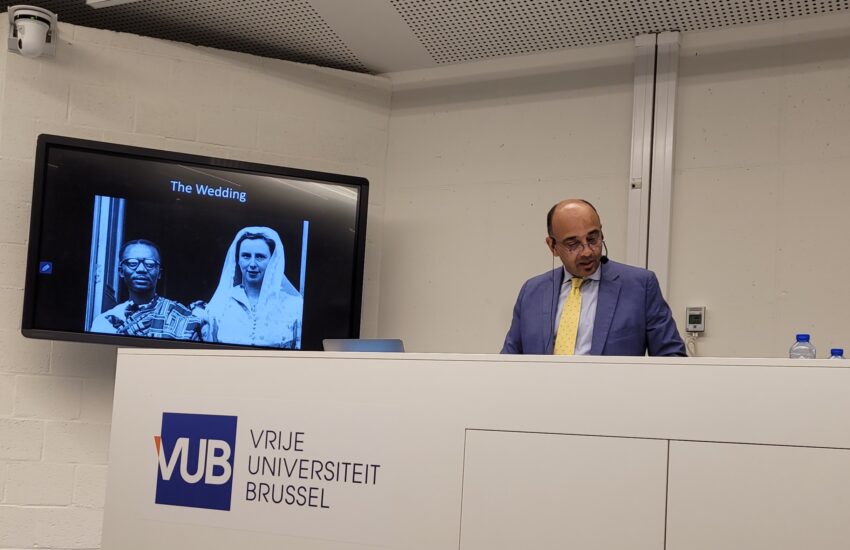Book Review: ‘One of Them’ by Musa Okwonga
Written by Tola Ositelu
I feel it’s incumbent on me to always reveal any personal connection to the author of a book I’m reviewing. It’s for this reason there’s some reluctance to do so and it often takes me a while to get round to it. There are the obvious issues about bias. There’s also the more diplomatic concern of how to broach any critique. The most constructive criticism risks being taken more to heart, depending on the fragility of the ego.
This could at least partially explain why a year and a half after its publication, I’ve only just read the first memoir by Berlin-based writer and football pundit, Musa Okwonga. I’m not going to exaggerate our relationship. We’re not part of each other’s inner circles. Our conversations, albeit consistently rich and uplifting, can occur at intervals of several years apart (albeit their regularity improved during lockdowns). Still, I consider Musa a fond, if distant, acquaintance.
We first met way back in the mid-late 2000s when he was a fixture of the London live circuit. He was a musician and spoken-word artist, emerging as part of various collectives. I even reviewed one of his albums. I’ve since followed the evolution of his career from afar, including his relocation to the German capital a decade ago.
Musa and I have key points of overlap. Both of us are Xennial children of first generation migrants from the African continent – mine from the West, his the East. We were both raised by single mothers who made eye-watering sacrifices to send their children to independent schools. Both of us remain critical of elite education despite – or because of – our direct personal experience (even if I suspect Musa is less vehement in his opposition than I). We both went on to study law and train as solicitors, although I didn’t attain the academic heights to earn me a place at one of the UK’s premier universities, as did Okwonga.
Something that has always struck me in our interactions is the depth of his intellect. He’s one of the brightest people I know; a holistic intelligence that isn’t common. Not only is he book-clever and well-versed in any number of subjects – from politics and world history to pop culture – but he’s thoughtful and emotionally intelligent. I recall empathetic discussions about navigating the world as an Afrodescendant woman and feeling heard and understood. We’ve had earnest talks about faith where he wasn’t reflexively dismissive, despite identifying as LGBTQ+ and having been raised in a traditional Christian household.
Okwonga is also blessed with sabre-sharp analytical skills. Yes, he’s attended world class educational institutions. Yet many of his contemporaries in the British media – similarly of the same private school-to-Oxbridge pipeline – could not boast of such. Goodness knows, the media landscape would be far better for it.
That’s why it always felt strange to me when Musa would sometimes frame himself as a chronic underachiever. I would readily relate to the frustration; I just didn’t believe he fit the profile. His opinion pieces could be read in some of the country’s top rags, across the political spectrum. He had authored two acclaimed sports-related books by his early 30s. I’d see his name on Young, Black and Gifted lists or hear it on the lips of other respected journalist peers. Okwonga counts amongst his good friends pop superstar, Ed Sheeran; their relationship predating the singer-songwriter’s stratospheric rise.
What Musa tried to make me understand – and which he elaborates in One of Them – is that by the lofty standards of the circles in which he once moved, he felt he’d merely scratched the surface. He left a potentially lucrative career in corporate law to pursue his creative passions. He’s often questioned the wisdom of this choice, always eventually landing on the affirmative. This internal tussle resurfaces several times in the memoir. Its very title is provocatively ambiguous. The bulk is dedicated to Okwonga’s time at Eton; that breeding ground for the upper echelons of British society and beyond. The decision to attend was not forced on young Musa. He implored his mother, she agreed and after an intense period at prep school he won an assisted place. Just his very presence there would lead some to believe that he was indeed one of them; part of the establishment.
However, as the oldest child of Ugandan refugees fleeing war, raised in a low-to-middle-income suburb near London, he never lost sight of his outsider position. Of course, there are those who would not let him forget. Okwonga was caught between the overt racism of the Far Right occasionally gaining a foothold in his neighbourhood, and the (not always) subtler but ultimately more insidious kind embedded in the British state, of which Eton is emblematic. He says himself ‘…the history of the Empire is intimately connected with the history of Eton…’
All this is artfully recounted in One of Them. Each chapter reads like a vignette of memory. Some are little more than a page long and not necessarily in chronological order. This is the work of someone who doesn’t simply enjoy putting his thoughts to paper. He reveres the writing craft. There are so many beautifully-composed passages, they could form a collection all of their own.
Whether it’s a masterful musical metaphor to describe a classmate’s sporting prowess or pithy observations with a touch of acidity, Okwonga does a class job…
‘…He is the most gifted of minimalists; a guitarist who can play the most complex of solos but confines himself to only a handful of chords, because that is what the band needs…’ [p.44]
‘…When he sprints, his buttocks look like two men fighting to push past each other on an escalator…’ [p.50]
‘…I see boys whose families have billions in assets wearing clothing that could disintegrate at any moment. Their favourite garments seem to be those drooping woollen sweaters that are apparently attacked nightly by a platoon of moths…’ [p.92].
Okwonga credits his comparatively modest upbringing for keeping him grounded. His politics diverge sharply from that of the vast majority of his peers. He decries the stranglehold the privileged have on political power. He never addresses famous Old Eton Boys by name, simply revealing their identities through obvious clues. It’s as if Okwonga doesn’t want to elevate their profiles more than they already are. One of the most notorious alumni, Boris Johnson, is only ever referred to as ‘the current prime minister’.
The author also upbraids the self-serving manner in which British history is taught; the refusal to reckon with its colonial past. One of Them is nevertheless undergirded with a generosity of spirit. Whilst Okwonga doesn’t excuse the elite’s sense of entitlement, he can wholly understand how they arrive there. He seeks not to caricature the staff and pupils that populated his former school. He fondly remembers those whose honourable character stood out from the rest. The teachers who helped expand his worldview. The housemaster who made sure that his charges didn’t get above themselves. The fact that it’s often the most down-to-earth individuals whom the author takes time to honour, speaks to the man he is; or at least the one he aspires to be. I have borne witness to this sincere life pursuit and I respect him for it. Neither is Okwonga afraid to highlight his own moral failings as a callow young man out to impress.
Since the 2021 publication of his memoir, Musa has gone on to more literary success; this time with a novel for young adults co-written with celebrated ex-football player, Ian Wright. Surely by now he’s able to put to bed at least some of that imposter syndrome. Take a moment to admire the view so far from the mountainside, even if he hasn’t reached the summit. As he once told me, he’s 50 years off his best work.
Yet, even if One of Them were his career pinnacle, he could sleep easy. Not only does it hold its own amongst quality autobiographies, it speaks well of Okwonga’s person and his priorities.
A longer edit of this review appears on the I Was Just Thinking blog.




